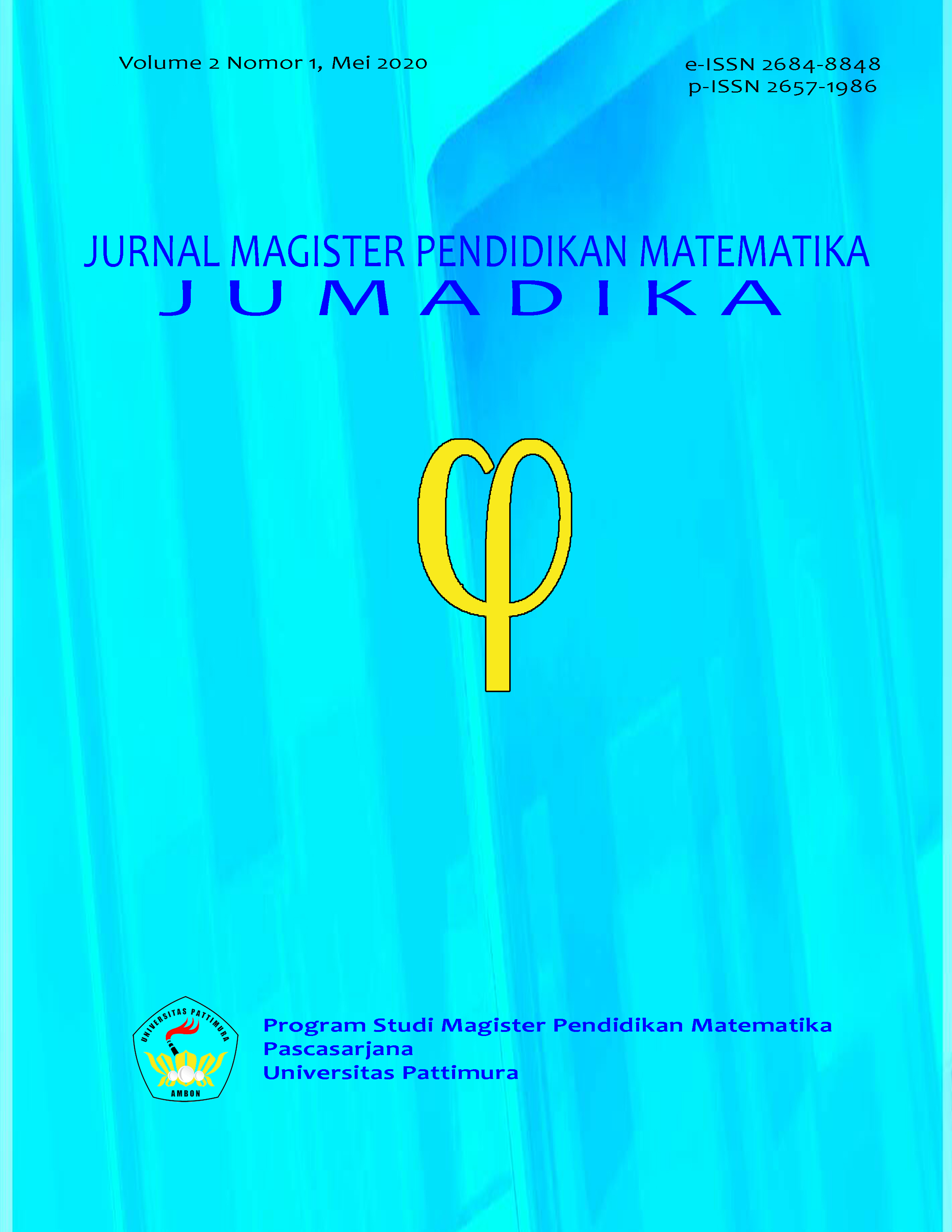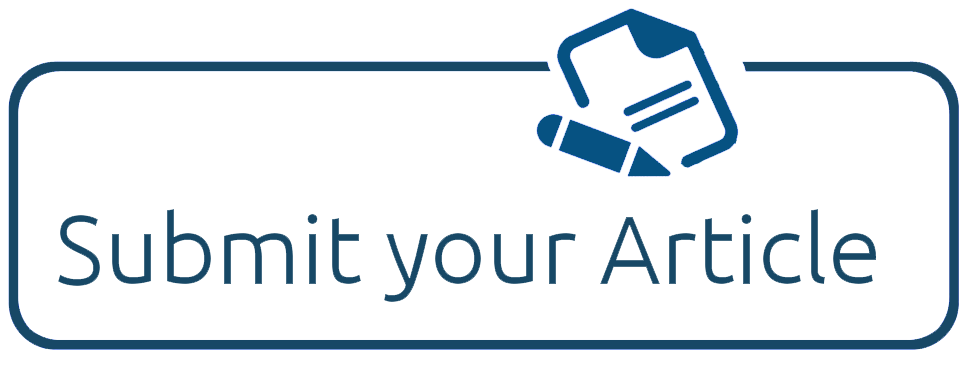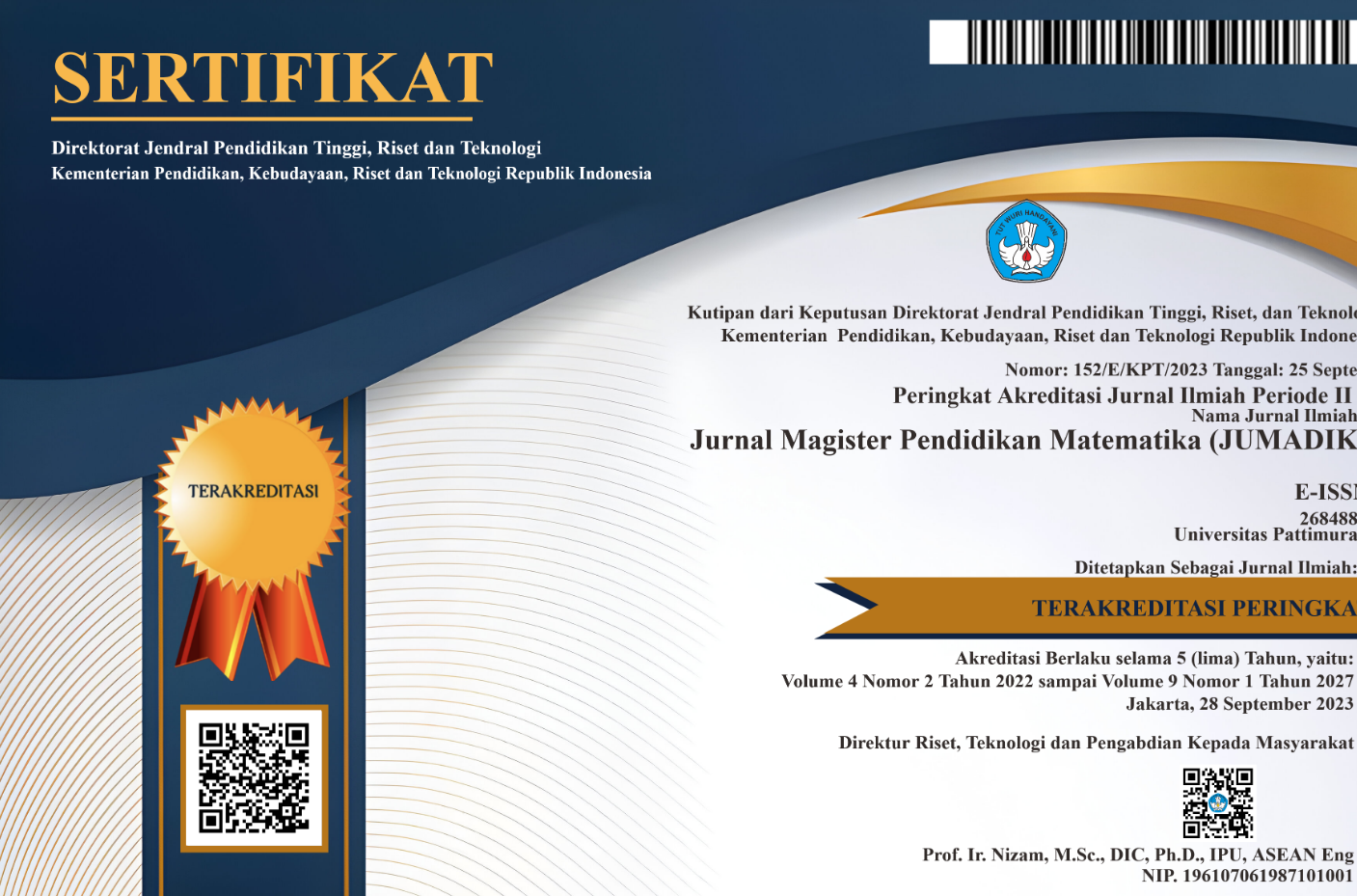PENINGKATAN HASIL BELAJAR PESERTA DIDIK PADA MATERI SISTEM PERSAMAAN LINEAR DUA VARIABEL MELALUI MODEL PEMBELAJARAN FLIPPED CLASSROOM
Abstract
Penelitian ini bertujuan untuk mengetahui peningkatan hasil belajar peserta didik pada materi sistem persamaan linear dua variabel melalui model pembelajaran flipped classroom di kelas VIII SMP Negeri 15 Ambon. Subjek penelitian ini adalah peserta didik kelas VIII6 SMP Negeri 15 Ambon yang berjumlah 25 orang, jenis penelitian ini adalah penelitian tindakan kelas. Penelitian ini dilaksanakan dalam tiga siklus dengan 5 pertemuan. Data penelitian ini dikumpulkan melalui lembar observasi dan tes. Hasil analisis menunjukkan bahwa setelah diberikan tindakan pada siklus I peserta didik yang mencapai ketuntasan sebanyak 6 orang dengan pencapaian 24%, dan pada siklus II diperoleh jumlah peserta didik yang mencapai ketuntasan 11 orang dengan pencapaian 44%, selanjutnya pada siklus III terjadi peningkatan yaitu diperoleh jumlah peserta didik yang mencapai ketuntasan 23 orang dengan pencapaian 92%. Dilihat hasil tes peserta didik dari siklus II dan siklus III maka telah terjadi peningkatan yaitu sebesar 48% dengan menggunakan model pembelajaran flipped classroom pada materi sistem persamaan linear dua variabel di kelas VIII SMP Negeri 15 Ambon
Downloads
References
Adhitiya, E.N., Prabowo, A., Arifudin, R. (2015). Studi Komparasi Model Pembelajaran Traditional Flipped dengan Peer Instruction Flipped Terhadap Kemampuan Pemecahan Masalah. Unnes Journal of Mathematics Education. Tersedia: http://journal.unnes.ac.id/sju/index.php/ujme diakses pada 14-05-2019.
Bergmann, J. & Sams, A. (2012). Flip Your Classroom: Reach every student in every class every day (First Edition). United States of America: iste. Tersedia: https://doi.org/10.1111/teth.12165
Lekitoo, J., Moma, L., & Ngilawajan, D. (2018). Peningkatan Hasil Belajar Siswa Kelas XI SMA Negeri 4 Ambon Pada Materi Irisan Kerucut Dengan Menggunakan Model Pembelajaran Kooperatif Melalui Media Pembelajaran CAI (Computer Assisted Instruction) Berbantuan Software Geogebra. Jurnal Pendidikan Matematika (Jupitek), 1(1), 41-46.
Ratumanan, T. G. (2002). Belajar dan Pembelajaran. Surabaya: Unesa Press.
Soedjadi, R. 2007. Masalah Kontekstual Sebagai Batu Sendi Matematika Sekolah. Surabaya: Pusat Sains dan Matematika Sekolah (PSMS).
Sugiyono. (2011). Metode Penelitian Kuantitatif, Kualitatif dan R&D. Bandung: Afabeta.
Suryosubroto. 2009. Proses belajar mengajar di Sekolah. Jakarta: Rhineka Cipta.
Copyright (c) 2020 Aprisa Wihinda, Theresia Laurens, Anderson L Palinussa

This work is licensed under a Creative Commons Attribution-NonCommercial-ShareAlike 4.0 International License.
License and Copyright Agreement
In submitting the manuscript to the journal, the authors certify that:
- They are authorized by their co-authors to enter into these arrangements.
- The work described has not been formally published before, except in the form of an abstract or as part of a published lecture, review, thesis, or overlay journal. Please also carefully read Jurnal Magister Pendidikan Matematika (JUMADIKA) Posting Your Article Policy.
- That it is not under consideration for publication elsewhere,
- That its publication has been approved by all the author(s) and by the responsible authorities – tacitly or explicitly – of the institutes where the work has been carried out.
- They secure the right to reproduce any material that has already been published or copyrighted elsewhere.
- They agree to the following license and copyright agreement.
Copyright
Authors who publish with Jurnal Magister Pendidikan Matematika (JUMADIKA) agree to the following terms:
- Authors retain copyright and grant the journal right of first publication with the work simultaneously licensed under a Creative Commons Attribution-NonCommercial-ShareAlike 4.0 International License (http://creativecommons.org/licenses/by-nc-sa/4.0/) that allows others to share the work with an acknowledgment of the work's authorship and initial publication in this journal.
- Authors are able to enter into separate, additional contractual arrangements for the non-exclusive distribution of the journal's published version of the work (e.g., post it to an institutional repository or publish it in a book), with an acknowledgment of its initial publication in this journal.
- Authors are permitted and encouraged to post their work online (e.g., in institutional repositories or on their website) prior to and during the submission process, as it can lead to productive exchanges, as well as earlier and greater citation of published work.








